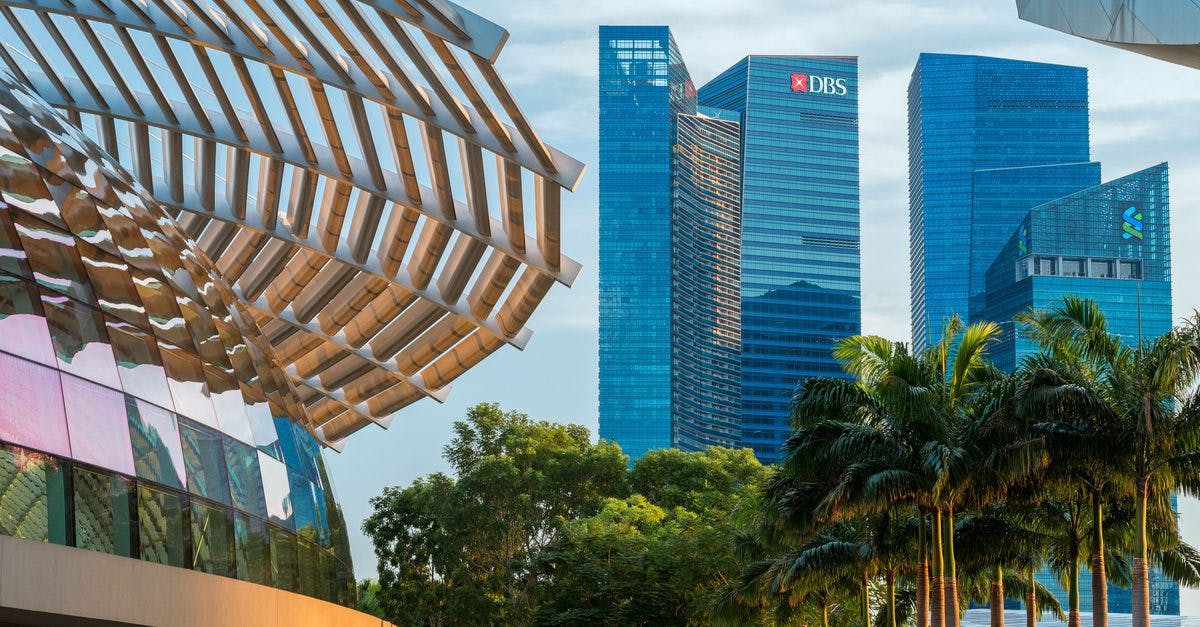DBS Plots 20% to 30% Annual Growth in Digital Currency Exchange Customers
DBS’s goal is to get 1,000 clients trading on the exchange by the end of the year

Source: Shutterstock
- DBS launched its institutional-focused digital asset exchange at the end of 2020, and wants to dramatically increase the number of clients trading on the platform by its first anniversary
- Recently the bank got approval from regulators in Singapore to offer its digital exchange products via its traditional Vickers securities brokerage
Executives at Singapore’s DBS digital exchange have plans to dramatically increase the number of clients trading on the platform, as institutional interest in digital assets continues to build.
DBS’ Digital Exchange currently offers bitcoin, bitcoin cash, ethereum and XRP as its digital assets and allows for traders to denominate their pairs in USD, Singapore dollars, Hong Kong dollars, or Japanese yen.
Speaking with Reuters, Eng-Kwok Seat Moey, head of capital markets at DBS, said that the exchange is growing very rapidly.
“Investors are gradually exploring cryptocurrencies and digital assets,” she said to Reuters.
Currently the bank has around 400 customers that push approximately $133 million in volume through the exchange. Its plan is to grow this number to 1,000 by year-end.
Kwee Juan Han, DBS’ group head of strategy and planning, added that the bank’s goal with the exchange “was to create a platform that could serve the entire digital asset value chain, from deal origination to tokenization, listing, trading, and custody – all within a trusted and regulated bank franchise.”
The bank said it plans to begin listing Security Token Offerings more frequently, with exchange executives targeting a half-dozen listings by the end of 2022. DBS launched its first STO in June, with hopes that it would revive an asset class that has remained largely stagnant since they first emerged as an alternative to ICOs in early 2018.
Digital assets meet an analogue corporate culture
But in order to grow the bank’s digital asset business, the bank needs to address some structural challenges head on. In an earlier interview with Blockworks, Alessio Quaglini, CEO of Hong Kong based Hex Trust, a digital assets custodian, said he hasn’t seen much interest around STOs because of their required regulatory framework.
While digital assets are intriguing to many investors because of their portability and efficiency of transfer, Quaglini explained that STO tokens would generally need to stay in their own central securities depository (CSD) in Singapore. The CSD needs to track ownership of the security; liquidity would be limited because it has to stay on the exchange (until protocols have been otherwise developed to allow for wallet whitelisting).
“With the current completely open blockchain infrastructure, I don’t think you can easily translate the current infrastructure of the securities market,” Quaglini said. “You have to set certain rules, you have to put strong restrictions.”
As far as DBS’ desire to boost overall exchange value, that’s unlikely to happen until the exchange gets competitive with existing crypto exchanges’ round-the-clock mentality. Currently, DBS’ exchange is only open during the Singapore business hours, but that’s something they are working on changing.
“This doesn’t really match the operating model of a bank,” Quaglini said in an earlier interview with Blockworks. “It’s very good to have a bank behind it. It’s very good to have their branding behind it. But I say at this point in the digital asset business this is secondary. People are more interested in the actual quality of services that are offered and the breadth of services.”
DBS’ stock closed the Monday trading day in Singapore at SGD 30.29, down 0.5%.
Are you a UK or EU reader that cant get enough investor-focused content on digital assets?Join us in London on November 15th and 16th for the Digital Asset Summit (DAS) London. Use code ARTICLE for £75 off your ticket. Buy it now.






